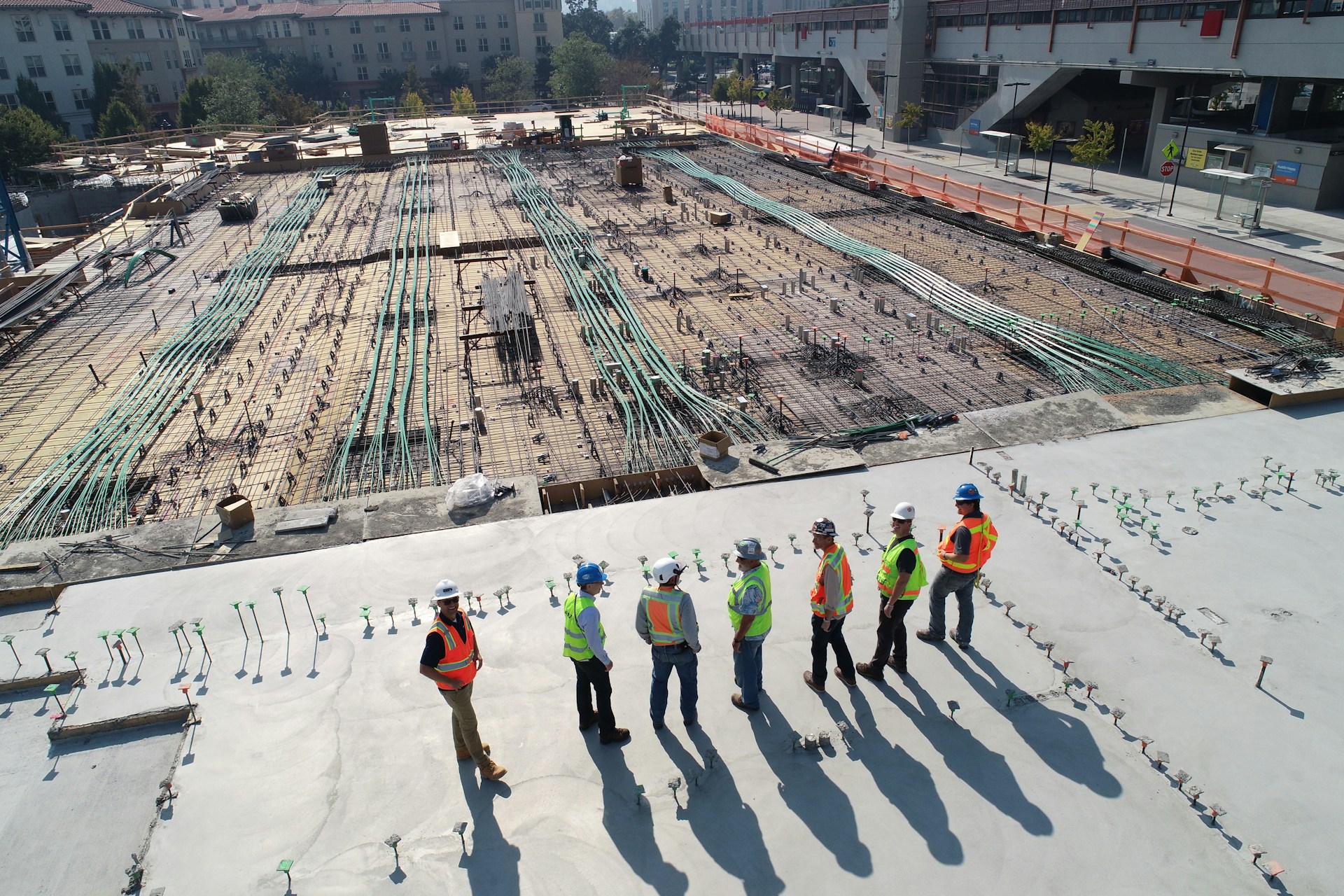What are the effective methods for UK construction firms to recruit skilled labor?

The construction industry in the UK is a thriving sector, with demand for skilled labor at an all-time high. As companies compete for the best talent, managers and HR departments need to understand how to attract and retain the right workers for the job. This article discusses various strategies to help construction companies enhance their recruitment process, thereby attracting the most skilled and suitable candidates.
Understanding the Skills Gap in the Construction Industry
Before delving into the recruitment strategies, it's necessary to understand the skills gap in the construction industry. It's no secret that the UK construction industry is experiencing a lack of skilled workers. In fact, the Federation of Master Builders reports that the skills shortage is at its worst level on record. It's important to address this gap to ensure a productive and efficient workforce.
Avez-vous vu cela : How to Ensure Compliance with the UK's Anti-Money Laundering Regulations in FinTech?
The skills gap can be attributed to several factors. The industry has seen significant growth over the years, leading to an increase in demand for skilled labor. However, there are not enough qualified workers to meet this demand. Some blame an aging workforce, with a large proportion of skilled workers retiring and not enough young people entering the industry to replace them.
To bridge this gap, companies need to focus on attracting more people to the industry. This can be achieved through various recruitment strategies, which we will discuss in the following sections.
Dans le meme genre : How can UK furniture makers leverage sustainable materials to gain market share?
Designing a Strong Employer Brand
Having a strong employer brand is crucial in attracting skilled workers. Companies should clearly communicate their values, culture, and opportunities for growth and development. By doing this, they can appeal to potential employees' aspirations and align with their career goals.
To start, companies can showcase their projects and work environment through their website and social media platforms. Highlighting the company's commitment to employee safety, development, and well-being can also help attract potential candidates. In addition, companies should ensure their job descriptions are clear and detailed, outlining the skills and qualifications required.
Regular training and development programs, along with competitive pay and benefits, can also enhance a company's employer brand. Offering apprenticeships and internships can attract young talent looking for opportunities to learn and grow in the industry.
Implementing Effective Recruitment Strategies
Once the employer brand is established, companies should focus on implementing effective recruitment strategies. Partnering with educational institutions and industry bodies can help companies reach potential candidates. These partnerships can provide opportunities for students to gain work experience and for companies to identify potential talent.
Recruitment agencies can also play a crucial role in attracting skilled workers. These agencies have access to a large pool of candidates and can help match companies with suitable workers. They can also help companies streamline their recruitment process, ensuring they attract the right talent in a timely manner.
In addition to traditional recruitment methods, companies should also leverage digital platforms. Online job boards, company websites, and social media can be effective tools in reaching a wider audience and attracting more skilled candidates.
Fostering a Culture of Learning and Development
A culture of learning and development is essential in attracting and retaining skilled workers. Regular training programs can help employees develop their skills and stay up-to-date with industry trends and technologies.
In addition to on-the-job training, companies should also offer opportunities for professional development. This could include funding for further education, industry seminars, or workshops. Companies that invest in their employees' development are more likely to retain their workers and attract new talent.
Building a Diverse and Inclusive Workforce
Creating a diverse and inclusive workforce is another important strategy in attracting skilled workers. Diversity in the workplace can lead to improved problem-solving, creativity, and innovation, benefiting the company as a whole.
Companies should ensure their recruitment practices are inclusive, free from bias, and open to candidates from all backgrounds. This could involve implementing diversity and inclusion training for HR and management staff, and ensuring job descriptions and advertisements are inclusive and welcoming.
As the UK construction industry continues to grow, companies will need to adapt their recruitment strategies to attract and retain skilled workers. With a strong employer brand, effective recruitment strategies, a culture of learning and development, and a commitment to diversity and inclusion, companies can bridge the skills gap and ensure a productive and efficient workforce.
Leveraging Technology in Recruitment Process
The role of technology in streamlining the recruitment process cannot be overstated. More and more construction companies are relying on technology to attract and hire skilled workers. Digital platforms such as job boards, company websites, and social media have proven to be effective tools in reaching a wider audience and attracting more skilled candidates.
A key aspect of utilizing technology in the recruitment process is Applicant Tracking Systems (ATS). This software enables companies to manage their recruitment process more effectively, from posting jobs to scheduling interviews. An ATS can help construction companies streamline their process, thereby saving time and resources. It also ensures that no potential candidate is overlooked during the recruitment process.
Another powerful tool at the disposal of construction companies is LinkedIn. This platform allows companies to advertise vacancies, connect with potential candidates, and build a strong online presence. LinkedIn also provides valuable insights into the job market, helping companies understand what skilled workers are looking for in a job.
In the era of smartphones, companies should also consider developing mobile-friendly websites and applications. This can make it easier for potential candidates to browse job openings and apply on the go.
Furthermore, virtual reality (VR) and augmented reality (AR) are emerging as new tools in the recruitment process. These technologies can provide potential candidates with a virtual tour of the construction site or a simulation of the job, providing them with a realistic idea of what to expect.
Embracing Work-Life Balance
Promoting a healthy work-life balance is a powerful strategy to attract and retain skilled workers in the construction sector. It is no longer just about pay; workers today value their personal time and seek employers who respect this.
Construction companies can promote work-life balance in several ways. Flexible working hours, for instance, can allow workers to better manage their personal and professional commitments. Providing opportunities for remote work, where feasible, can also help attract skilled workers seeking a better work-life balance.
Companies should also consider implementing wellness programs. These could include gym memberships, mental health support, regular health check-ups, and more. Such initiatives show that the company cares about its employees' well-being, which can boost employee morale and loyalty.
Employee engagement activities, such as team building exercises, can also help foster a positive work environment. These activities can help improve communication and collaboration among employees, leading to a more productive and efficient workforce.
Conclusion
As the UK construction industry continues to deal with the skills shortage, it's clear that companies need to rethink their recruitment strategies. Embracing technology, promoting a healthy work-life balance, fostering a culture of learning and development, and building a diverse and inclusive workforce are key strategies in attracting and retaining skilled workers.
By implementing these strategies, construction firms not only bridge the skills gap but also ensure a more productive and efficient workforce in the long term. It's about creating a work environment where employees feel valued, respected, and motivated to give their best. This will not only enhance the company's reputation but also contribute to the overall growth of the UK's construction sector.
